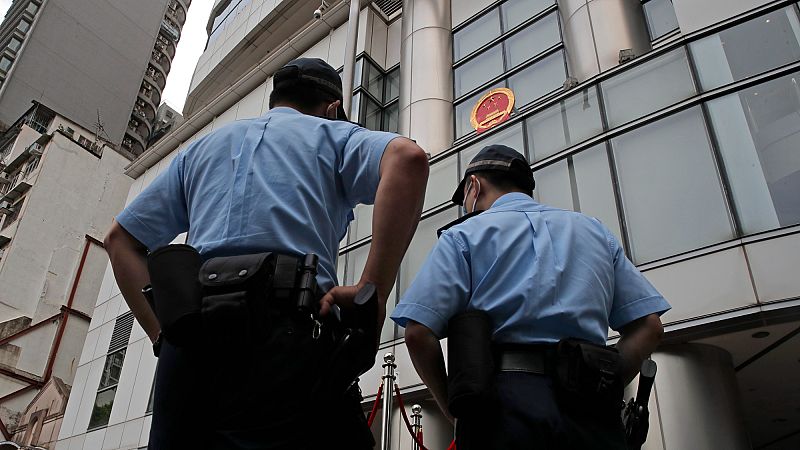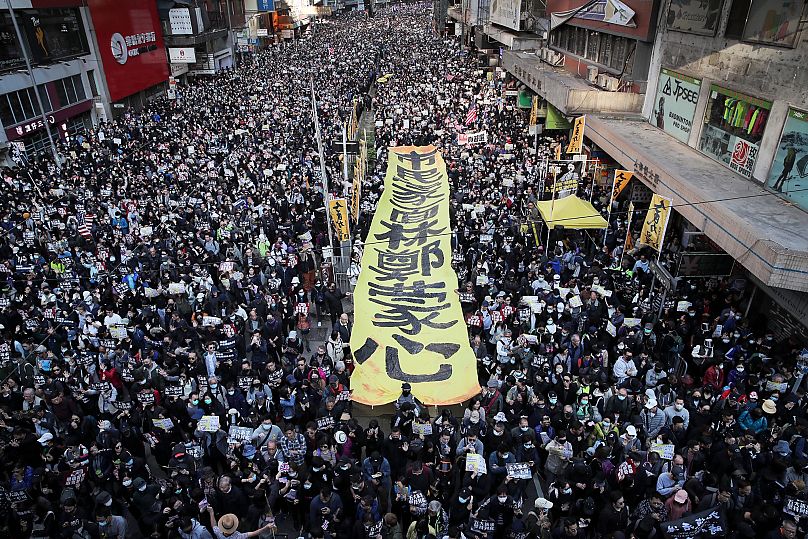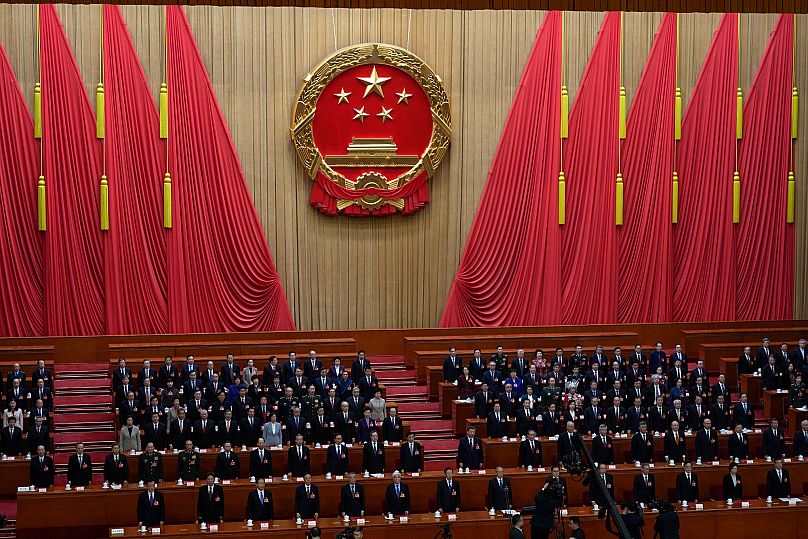
Police in Hong Kong announced on Thursday that they had arrested four people linked to a Taiwan-based group under the city’s new national security law, accusing them of conspiracy to commit subversion.
Steve Li, Chief Superintendent of the National Security Department, said the arrests on Wednesday involved four men aged between 15 and 47. They face up to life imprisonment if convicted.
Police said their organisation, reportedly called the Hong Kong Democratic Independence Union, was founded last year in Taiwan.
The self-ruled island is one of the democratic territories where many Hong Kongers have emigrated due to fears over the Beijing-controlled city's security law.
Li said the four men's roles included designing flags, studying how to solicit assistance from foreign countries and planning to provide military training for members.

During their search in Hong Kong, Li said police found a proposal to urge the US to devise plans to save Hong Kong political prisoners, as well as some flags that featured designs about Hong Kong and Tibet's independence.
He said the group's members held an online news conference in Taipei in February, during which some of its members pledged to "end the Communist Party" and "liberate Hong Kong," among other goals.
On 1 July, when the former British colony marked the 28th anniversary of its return to Chinese rule, the group held an activity abroad that saw participants stepping on the Chinese national flag and Hong Kong's regional flag, Li said.
He said members played the song "Glory to Hong Kong," which was often sung by demonstrators during massive anti-government protests in 2019 and was later banned by a court.
Li said authorities have jurisdiction over Hong Kongers who commit national security offences overseas.

In response, the group condemned the government for what it called abusing the security law and suppressing freedom and human rights. It said on its Facebook page that it would not remain silent.
Last month, Hong Kong police accused a mobile game application, developed by ESC Taiwan, of advocating armed revolution and promoting secessionist agendas.
Critics said the crackdown under the national security law, introduced in 2020, has stifled the city's freedom of expression and other Western-style civil liberties that Beijing promised to keep intact for 50 years from the 1997 handover under a policy known as One Country, Two Systems.
The Beijing and Hong Kong governments said the law is necessary for the city's stability following the 2019 mass protests.







